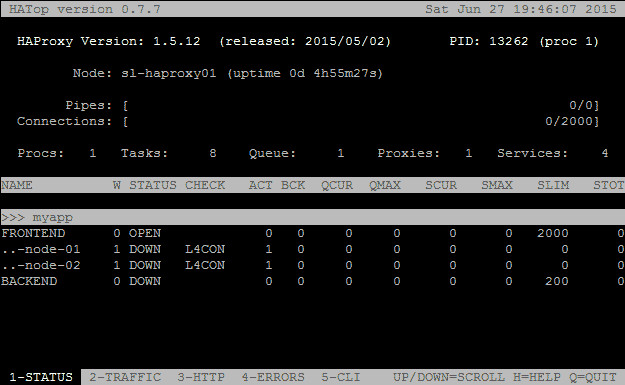Overview
In this tutorial, you will learn how to list open files on your Ubuntu servers using the lsof command.
The are a number of scenarios where you, a system administrator, will need to know what files are in use by your users or services. It could be to discover which files are open on a volume that needs to be unmounted for maintenance, or to ensure a service is running correctly, for example.
List All Open Files
In the first example, a listing all of open files by all users will be generated with the lsof command.
lsof /dev/null
The output will look similar to the following.
COMMAND PID TID USER FD TYPE DEVICE SIZE/OFF NODE NAME systemd 1 root cwd DIR 202,1 4096 2 / systemd 1 root rtd DIR 202,1 4096 2 / systemd 1 root txt REG 202,1 1595792 19540 /lib/systemd/systemd systemd 1 root mem REG 202,1 1700792 2083 /lib/x86_64-linux-gnu/libm-2.27.so systemd 1 root mem REG 202,1 121016 16613 /lib/x86_64-linux-gnu/libudev.so.1.6.9 systemd 1 root mem REG 202,1 84032 2068 /lib/x86_64-linux-gnu/libgpg-error.so.0.22.0 systemd 1 root mem REG 202,1 43304 2212 /lib/x86_64-linux-gnu/libjson-c.so.3.0.1 systemd 1 root mem REG 202,1 34872 6169 /usr/lib/x86_64-linux-gnu/libargon2.so.0 systemd 1 root mem REG 202,1 432640 2208 /lib/x86_64-linux-gnu/libdevmapper.so.1.02.1 [ truncated results ]
Listing Files Opened by User
Another example is listing files opened only by a specific user. The -u flag is used with the lsof command to filter the list for a specified user. For example, here is an example of the command for a user named www-data.
lsof -u www-data
The user is for an Apache2 web server, and the resulting list would look similar to the following. The results have been truncated, as the listing can get quite long.
COMMAND PID TID USER FD TYPE DEVICE SIZE/OFF NODE NAME systemd 1 root cwd DIR 202,1 4096 2 / systemd 1 root rtd DIR 202,1 4096 2 / systemd 1 root txt REG 202,1 1595792 19540 /lib/systemd/systemd systemd 1 root mem REG 202,1 1700792 2083 /lib/x86_64-linux-gnu/libm-2.27.so systemd 1 root mem REG 202,1 121016 16613 /lib/x86_64-linux-gnu/libudev.so.1.6.9 systemd 1 root mem REG 202,1 84032 2068 /lib/x86_64-linux-gnu/libgpg-error.so.0.22.0 systemd 1 root mem REG 202,1 43304 2212 /lib/x86_64-linux-gnu/libjson-c.so.3.0.1 systemd 1 root mem REG 202,1 34872 6169 /usr/lib/x86_64-linux-gnu/libargon2.so.0 systemd 1 root mem REG 202,1 432640 2208 /lib/x86_64-linux-gnu/libdevmapper.so.1.02.1





